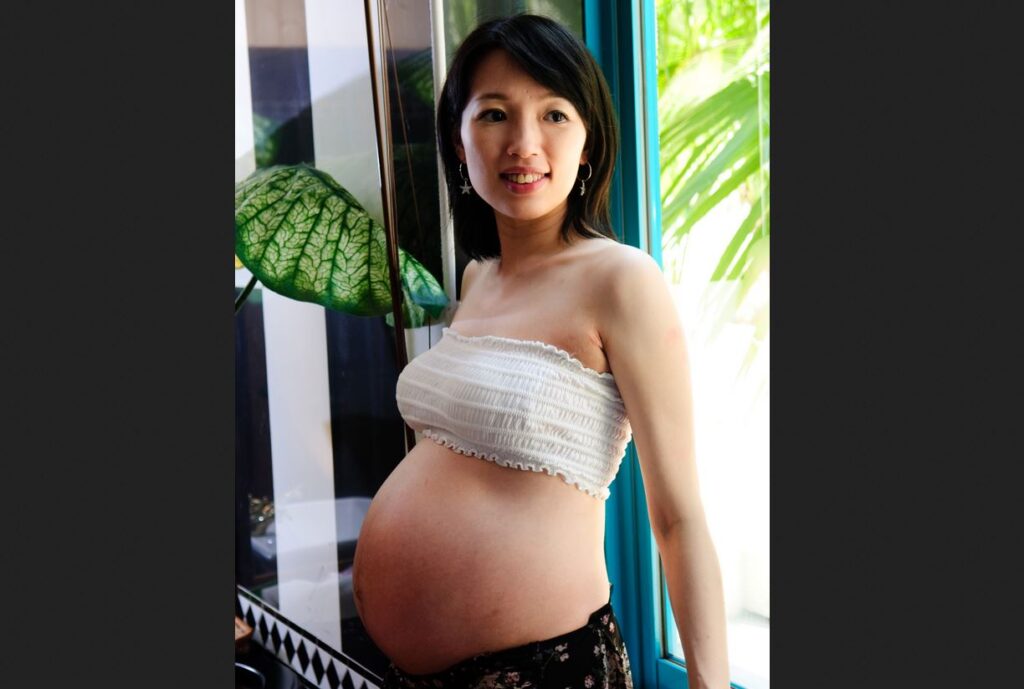By Katherine Nguyen, Cade Foundation Intern
Reproductive justice has been defined as the “human right to control our sexuality, our gender, our works, and our reproduction.” According to the National Black Women’s Reproductive Justice Agenda, RJ is dependent on the “economic, social, and political power and resources” that individuals and communities have access to. This article looks at the impact of reproductive justice in the AAPI community.
RJ acknowledges the impact that social factors, such as race or class, have on health outcomes and all other areas of our lives. Therefore, when we talk about RJ, we must also talk about reproductive and maternal health outcomes, and how social factors produce disparities in these outcomes.
The Center for Disease Control’s Morbidity and Mortality Weekly report listed the Pregnancy-Related Mortality Ratios (PRMR) of Asian American and Pacific Islanders at 13.5 pregnancy-related deaths per 100,000 live births. This sits near the same level as their White counterparts (12.7 per 100,000), making the disparity ratio for AAPIs to Whites about 1.1. Comparing the disparity ratio to other racial/ethnic groups, the Black to White ratio is at 3.2 and the Indigenous to White ratio is 2.3.
These numbers make it seem like there may not be as many racial disparities in PRMR in the AAPI community. Or at least that the disparities are not as important to recognize. And that feels clear given the way that the report framed the issue. But this exclusion of AAPIs may actually stem from an issue with data collection, one that is influenced by the infamous model minority myth.
The model minority myth refers to a common stereotype about Asian Americans. It states that all people of Asian descent are highly educated, hard-working, successful, and capable of social mobility. This is a belief that has been denounced by many, as it is often used to criticize other marginalized groups for not working hard enough to achieve the same levels of success.
Recent calls for racial justice have increased efforts to recognize the harm produced by the model minority myth and to bridge the resulting racial wedge between AAPI populations and other racial/ethnic groups.
This is the issue at hand: The model minority myth treats the AAPI community as if it were a monolith; as if everybody in the diaspora holds the same experiences and life outcomes. As a result, this has negatively influenced the way that data and statistics are collected for the AAPI community, including reproductive and maternal health outcomes.
This means that disparities in things such as socioeconomic status, health outcomes, and so many other life outcomes for the AAPI community are effectively hidden. As a result, the AAPI community is often excluded as a target for policy considerations to alleviate racial disparities in reproductive and maternal health outcomes.
Here are some notable statistics:
- In a 2021 study it was found that Filipinas and Vietnamese mothers showed an increased risk for preterm birth (when comparing Asian American subgroups to non-Hispanic White people). In contrast, Chinese, Korean, and Indian mothers showed decreased risk.
- Another study found that risk of composite adverse outcome (obstetric anal sphincter injury, admission to the ICU, maternal blood transfusion, uterine rupture, and unplanned hysterectomy) varied by ethnic group: Rates were higher for most Asian subgroups compared to White women, except for Japanese women, and risk was highest for Filipina and Pacific Islander women.
- A review article examined a total of 76 research articles published between 1991 and 2018 in order to better understand health outcomes and gaps in health knowledge for the Asian American community. Under the subsection about infant and maternal health, it was reported that preterm delivery rates were generally lower in East Asian American subgroups (Chinese, Japanese, and Korean) than in other Asian American subgroups, although results differed on which subgroup had the worst rates.
- According to FertilityIQ, there may be a reason to believe that some people of East Asian descent may have an increased risk of endometriosis compared to fertility patients from other ethnicities and heritages (Filipino patients are 4.69 times more likely compared to White patients, while Koreans are 5.48 times more likely).

These statistics show that there is much variation in reproductive and maternal health outcomes between different ethnic groups in the AAPI community. Therefore, grouping all AAPI individuals into one category hides a lot of the diversity and built-in disparities that exist within this community.
In order to help fix these disparities, we have to be aware of how severe the problem is for each ethnic group in the first place. The decision to exclude AAPIs in the previously mentioned CDC report was largely due to a failure in current data collection methods. Therefore, these methods need to be addressed in order to alleviate these disparities.
We must advocate for the disaggregation (ungrouping) of AAPI data, as well as increased sampling of underrepresented AAPI ethnic groups. Additionally, policy considerations to deconstruct structural racism in healthcare must also be inclusive of the AAPI community. Maternal and infant health outcomes for the AAPI community happen to be one of many issues that we must manage before we are one step closer to reproductive justice.
Author’s note: The author recognizes the fact that not every person who is capable of pregnancy identifies as a woman and tries to use inclusive language wherever possible. The word “women” is only used in quotes or in references to studies in which women were explicitly sampled. The author wishes to acknowledge and uplift the existence of non-binary, trans, and agender people and their right to control their own reproduction.
AsAmNews is published by the non-profit, Asian American Media Inc.
We’re now on BlueSky. You can now keep up with the latest AAPI news there and on Instagram, TikTok, Facebook, YouTube and X.
We are supported by generous donations from our readers and by such charitable foundations as the Robert Wood Johnson Foundation.
You can make your tax-deductible donations here via credit card, debit card, Apple Pay, Google Pay, PayPal and Venmo. Stock donations and donations via DAFs are also welcomed.

